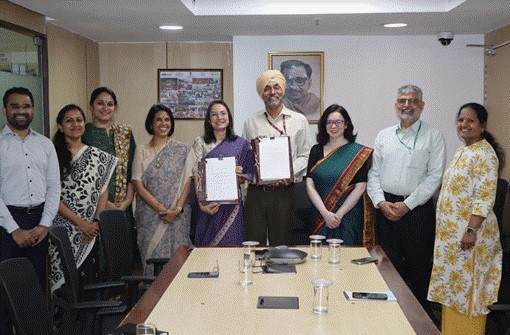The Ministry of Rural Development, Government of India signed a MoU with Abdul Latif Jameel Poverty Action Lab (J-PAL), South Asia at IFMR. J-PAL, SA@ IFMR will act as a knowledge partner on inclusive development to put rural poor women on the path to self-sufficiency. The MoU was signed by Additional Secretary, Ministry of Rural Development Shri Charanjit Singh and Executive Director, J-PAL South Asia Ms. Shobhini Mukerji.

Shri Charanjit Singh said that it is important for any programme under implementation to get a feedback in real time and this MoU will help in this process.”

The inclusive development strategy will adapt BRAC’s Graduation Approach, a comprehensive livelihoods programme that randomised evaluations by researchers affiliated with J-PAL and Innovations for Poverty Action have found to be effective in lifting the vulnerable households out of poverty. As part of this partnership, J-PAL South Asia will support MoRD in catalysing the adoption of scientific evidence and data in their decision-making.

J-PAL South Asia will also collaborate with MoRD to set-up a Gender Impact Lab to conduct new research and institutionalise data use within Deendayal Antyodaya Yojana National Rural Livelihoods Mission (DAY NRLM) for driving women-led development.
DAY-NRLM is one of the largest community mobilisation efforts in the world, organising more than 10.04 crore women into over 90.76 lakh self-help groups. The programme promotes financial inclusion, digital lieteracy, sustainable livelihoods and social development interventions. But above all, it empowers them to lead dignified lives.
J-PAL South Asia, together with Bandhan-Konnagar, has been working with the Government of Bihar’s JEEViKA since 2018 to support the expansion of Satat Jeevikoparjan Yojana (SJY), estimated to be the largest government-led scale-up of the Graduation Approach in the world. SJY is on track to reach 200,000 women-headed households by 2024 across Bihar.

Comments are closed.